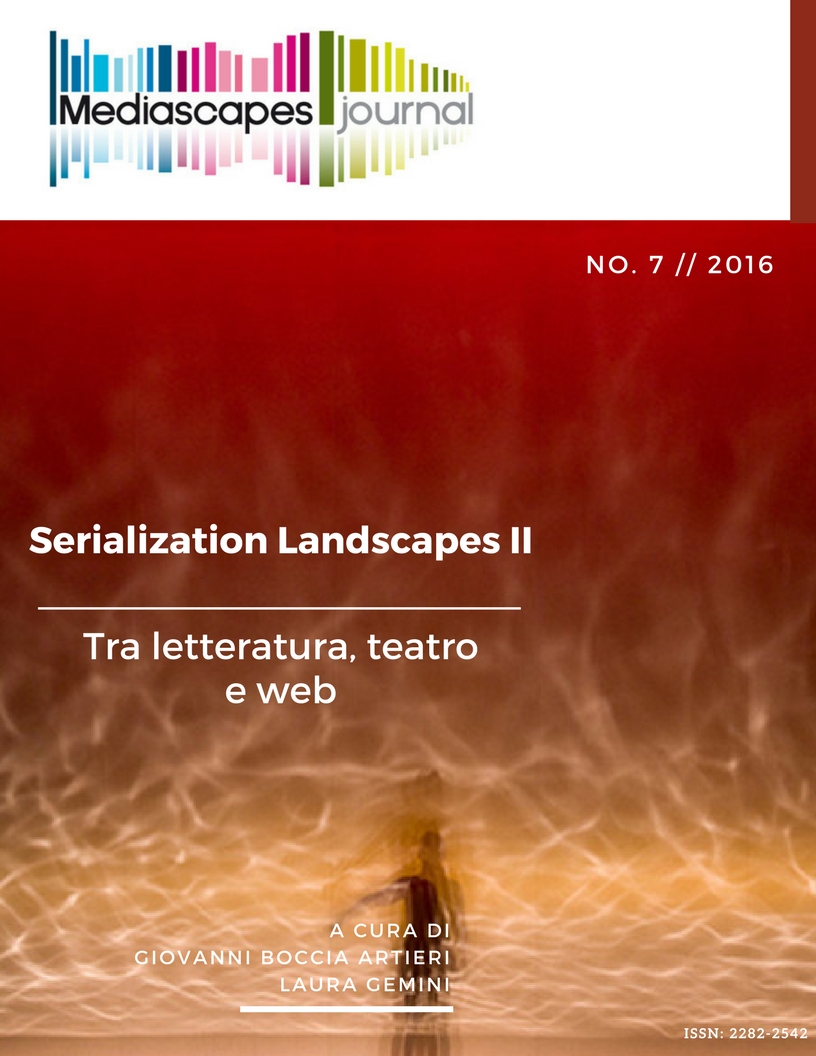Serialità teatrale. Osservazioni esplorative fra teatro e media
Keywords:
theatre, seriality, narrative ecosystem, media, performanceAbstract
The goal of the article is to contribute to the broad debate around the new seriality and mediatized narrative contexts by observing the theatrical seriality. The topic is dealt with a mediological approach that integrates the studies on the industrial culture and media, the performance studies and theater studies. On these basis, the contribution tries to observe how the serial temporal and spatial forms highlighted by media studies, especially based on television, can be useful tools for analyzing the theatrical seriality. First of all is possible to recognize the existence of a continuum that goes from proto-serial forms of theater to neo-serial forms. A passage similar to the character of the new narrative seriality that characterizes the narrative ecosystems and contemporary mediascapes. By some examples the article shows how the theatrical seriality was basically based, in the past, on the mechanisms of the "series" – that is the narrative form based on interconnected and concluded episodes – whereas today the scenario described by the contemporary theater presents more complex situations. The contemporary theater experiences seriality by the composition of hybrid performance and "abnormal" projects that are the result of changes made by the theater both on the level of narrative and dramatic conception, and in terms of the relationship with the audience.
Downloads
How to Cite
Issue
Section
License
Mediascapes Journal is published under a Creative Commons Attribution Licence 4.0.
With the licence CC-BY, authors retain the copyright, allowing anyone to download, reuse, re-print, modify, distribute and/or copy their contribution. The work must be properly attributed to its author. It should be also mentioned that the work has been first published by the journal Anuac.
Having published these contributions for the first time, Mediascapes Journal will have the right to publish them integrally or partially as reprints or possibly as part of a thematic issue, in both digital and printed format.
It is not necessary to ask further permissions both to author or the journal.


